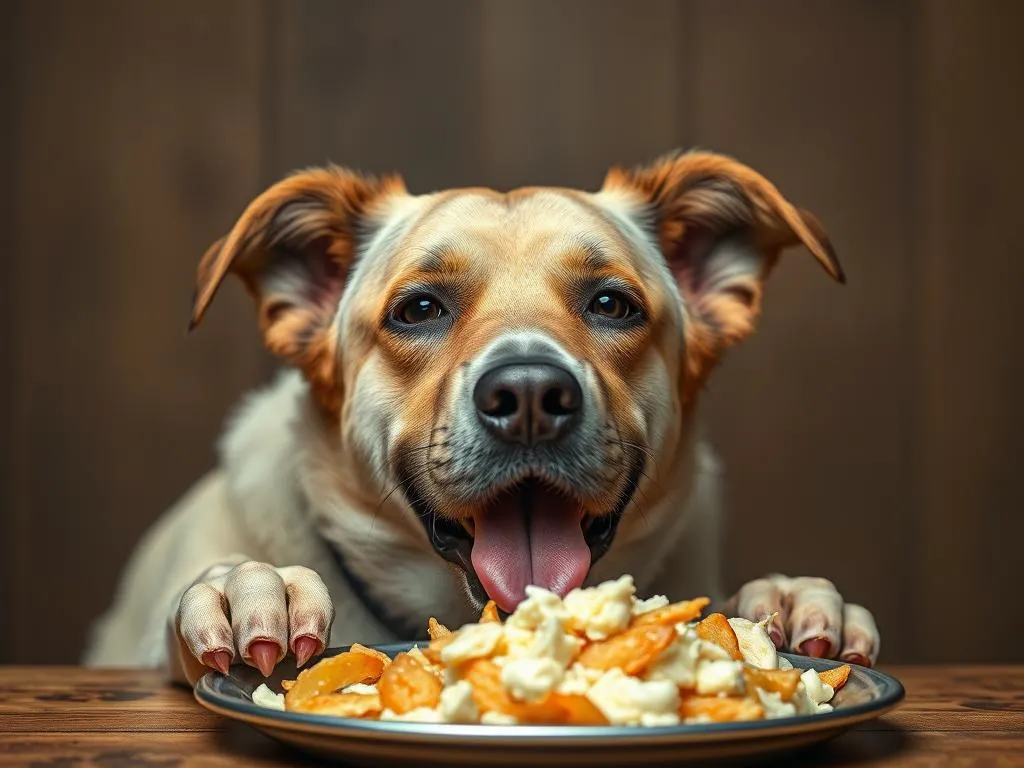
Nutrition plays a crucial role in ensuring the health and well-being of our furry friends. As dog owners, we often find ourselves pondering what our pets can and cannot eat, especially when it comes to popular human foods. One such food that has gained popularity in recent years is ghee. Known for its rich flavor and numerous health benefits for humans, many pet owners wonder: can dogs eat ghee? This article explores the safety, nutritional implications, and potential benefits of ghee for dogs.
Understanding Dog Nutrition
Basic Nutritional Needs of Dogs
To understand whether ghee can be a part of a dog’s diet, it’s essential to grasp the fundamental nutritional needs of our canine companions. Dogs require three primary macronutrients:
- Proteins: Vital for growth, maintenance, and repair of body tissues.
- Fats: Provide energy, support cell structure, and are crucial for absorbing fat-soluble vitamins.
- Carbohydrates: Serve as a secondary energy source, aiding in digestion and providing fiber.
In addition to these macronutrients, dogs also need a variety of vitamins and minerals. These micronutrients are essential for various bodily functions, including immune response, bone health, and overall vitality.
Common Dietary Sources for Dogs
When it comes to meeting a dog’s nutritional needs, there are two primary sources: commercial dog food and homemade diets.
-
Commercial Dog Food: Most dog owners rely on commercial kibble or canned food, which is formulated to meet the nutritional standards set by veterinary organizations. These foods often contain a balance of proteins, fats, carbohydrates, vitamins, and minerals.
-
Homemade Diets: Some dog owners choose to prepare their dog’s meals at home, allowing for more control over ingredients. This can be beneficial but requires careful planning to ensure nutritional adequacy.
Additionally, treats and supplements can play a role in canine nutrition, providing extra nutrients or simply rewarding good behavior.
What is Ghee?
Definition and Origins
Ghee is a type of clarified butter that originated in ancient Indian cuisine. It is made by simmering butter to separate the milk solids and water from the fat. The result is a rich, golden substance that’s lactose-free and has a higher smoke point than regular butter. Ghee has a long shelf life and is often used in cooking due to its nutty flavor and health benefits.
Nutritional Profile of Ghee
Ghee is not just flavorful; it also has a distinctive nutritional profile:
- Calories: Approximately 112 calories per tablespoon.
- Fat Content: About 12.7 grams of fat, predominantly saturated fat.
- Vitamins: Rich in fat-soluble vitamins A, D, E, and K.
Compared to regular butter, ghee contains no lactose and fewer milk proteins, making it a potential option for those with lactose intolerance. However, the high-fat content can be a concern when considering can dogs eat ghee.
Can Dogs Eat Ghee?
Safety Considerations
When introducing any new food into a dog’s diet, safety is paramount. While ghee is generally safe for dogs, there are a few considerations:
-
Allergies and Intolerances: Some dogs may have sensitivities or allergies to dairy products. Although ghee is lower in lactose, it’s still derived from milk, so caution is advised.
-
High-Fat Content: Dogs are primarily carnivorous and have a different digestive system than humans. A diet high in fats can lead to obesity, pancreatitis, and other health issues. Therefore, moderation is key when feeding ghee to dogs.
Benefits of Ghee for Dogs
Despite the considerations, there are potential benefits to incorporating ghee into a dog’s diet:
-
Digestibility: Ghee is easier to digest than regular butter, making it a better option for some dogs, particularly those with sensitive stomachs.
-
Calories and Fatty Acids: Ghee can provide a concentrated source of energy, which may be beneficial for active dogs or those with higher caloric needs.
-
Skin and Coat Health: The fatty acids in ghee, particularly omega-3 and omega-6, can promote a healthy coat and reduce dry skin.
Recommended Serving Sizes
If you decide to give your dog ghee, it’s crucial to do so in moderation. A general guideline is:
- Small Dogs: 1/4 teaspoon daily.
- Medium Dogs: 1/2 teaspoon daily.
- Large Dogs: 1 teaspoon daily.
Always observe your dog’s reaction after introducing ghee. If any adverse effects arise, discontinue use and consult a veterinarian.
Alternatives to Ghee
Other Healthy Fats for Dogs
If you’re hesitant about incorporating ghee into your dog’s diet, there are several other healthy fat options that are safe and beneficial:
-
Coconut Oil: Rich in medium-chain triglycerides (MCTs), coconut oil can enhance brain function and improve skin health.
-
Olive Oil: This oil is packed with antioxidants and can support heart health, but should be used sparingly due to its high-caloric content.
-
Fish Oil: A great source of omega-3 fatty acids, fish oil can help reduce inflammation and improve coat quality.
Homemade Dog Food Recipes Incorporating Safe Fats
For those interested in creating balanced meals for their dogs, incorporating healthy fats is simple. Here are a few suggestions:
- Chicken and Rice with Olive Oil
- Cook chicken breast and rice.
-
Drizzle with olive oil before serving.
-
Beef and Vegetable Stir-Fry with Coconut Oil
- Sauté ground beef with assorted vegetables in coconut oil.
-
Serve warm.
-
Fish and Sweet Potato with Fish Oil
- Bake fish and mash sweet potatoes.
- Mix in fish oil for added omega-3s.
Signs of Dietary Issues in Dogs
Common Symptoms of Food Intolerance
Introducing new foods, such as ghee, can sometimes lead to food intolerances. Common signs that your dog might be reacting negatively include:
- Vomiting or diarrhea
- Excessive gas
- Changes in appetite or energy levels
- Skin irritations or itching
When to Consult a Veterinarian
If you notice any of these symptoms after introducing ghee or any new food, it’s essential to consult a veterinarian. Professional guidance is crucial for making dietary changes and ensuring your dog’s nutrition is balanced and healthy.
Conclusion
In summary, can dogs eat ghee? Yes, but with caution and moderation. Ghee can offer certain benefits, such as improved digestibility and skin health, but its high-fat content and potential for allergies necessitate careful consideration. Always prioritize a balanced and nutritious diet for your dog, and consult with a veterinarian before making any significant changes to their diet.
Frequently Asked Questions (FAQs)
Is ghee better than butter for dogs?
Ghee is often considered better than butter for dogs due to its lower lactose content and higher digestibility. However, both should be given in moderation.
Can all dogs eat ghee?
Not all dogs can safely consume ghee. Dogs with dairy allergies or those prone to pancreatitis should avoid it. Always consult with a veterinarian first.
What to do if my dog has a bad reaction to ghee?
If your dog shows signs of a bad reaction, such as vomiting or diarrhea, discontinue feeding ghee immediately and consult your veterinarian for advice.
Are there any health benefits of ghee for dogs?
Ghee may help with digestion, provide essential fatty acids, and improve skin and coat health when given in moderation. However, individual responses can vary.
References
- Nutritional guidelines for dogs from veterinary organizations.
- Studies on the effects of fats in canine diets.
- Articles discussing the health benefits of ghee in human and animal diets.









